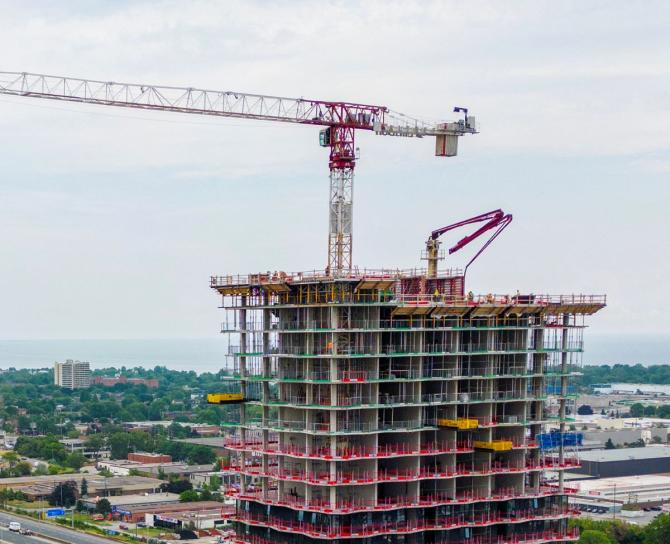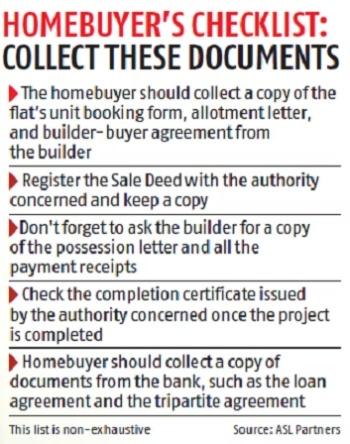Section 19(4) of the RERA Act entitles allottees to a refund if the developer doesn’t comply with the terms of the sale agreement.
The National Consumer Disputes Redressal Commission (NCDRC) has ordered a hefty refund of Rs 33 crore (Rs 330 million), along with 12 per cent interest, to three flat buyers in World One project in Upper Worli (Lower Parel), south central Mumbai.
The developers were held liable for promoting the project without the requisite statutory approvals and for prolonged delays, exceeding four years, in handover.
While property buyers faced many issues earlier, the enactment of the Real Estate Regulatory Authority Act of 2016 (RERA Act) has led to a significant increase in transparency and accountability within the sector. The Act empowers homebuyers and allottees by granting them several rights.
Construction timeline
Under RERA, developers must inform buyers about the stage-by-stage schedule for project completion.
This information should be clearly stated in the sale agreement or the allotment letter. Says Girish Rawat, partner, Luthra and Luthra Law Offices India: “Any delay entitles the allottee to the remedies mentioned in the RERA Act.”
Experts say the homebuyer should not sign the Builder-Buyer Agreement (BBA) if the construction schedule is not mentioned in it.
Raj Khosla, founder and managing director of MyMoneyMantra.com, informs that homebuyers can also acquire a detailed construction schedule of their project from the RERA Web site.
Home loan borrowers should ensure that disbursements by the bank are aligned with construction stages.
Says P C Roy, associate, ASL Partners: “If a homebuyer has availed of a loan, s/he should check in the tripartite agreement and the loan agreement that the disbursal of the loan amount is based on the stage of construction or the construction schedule.”
Right to possess the property
According to Section 19 (3) of the RERA Act, buyers are entitled to claim possession of the property.
Additionally, building associations are entitled to lay claim to common areas on the date of possession.
Homebuyers should check the BBA for a default clause (the provision in a contract that states what will happen if either party defaults or fails to hold up their end of the agreement) for anything that may be disadvantageous to them.
Right to refund
Section 19(4) of the RERA Act entitles allottees to a refund if the developer doesn’t comply with the terms of the sale agreement.
Says Mani Gupta, partner, Sarthak Advocates & Solicitors: “Under Section 18 of the RERA Act, an allottee is entitled to seek a full refund with interest for the period of delay.”
According to Ravi Bhasin, senior partner, AZB & Partners, the Supreme Court had ruled in a consumer complaint case that an individual can not be kept waiting indefinitely for the possession of her/his allotted property and is entitled to a refund as well as compensation.
The right to refund exists even if the buyer had consented to alterations in the project plan initially.
Says Bhasin: “If the allottee feels that the changes will affect her adversely, she has the right to seek a refund, even if she had given her consent in the allotment letter.”
This is because the consent was given without knowing the full implications of the intended changes, which were not disclosed to her earlier.
If the builder fails to give possession, the homebuyer should issue a legal notice.
Roy says that if the developer fails to deliver possession or reply to the legal notice, the buyer should lodge a formal complaint under RERA for cancellation and refund, including interest and compensation.
Access to documents
Section 19(5) of the RERA Act gives buyers the right to access all crucial documents (like No Objection Certificate), and plans (say, drawings) throughout the construction process.
Says Bhasin: “The purpose is to allow the buyer to analyse the project’s status and whether there are any implications on her decision to own a property in it.”
If the developer does not comply, buyers can seek intervention under Section 35.
Verify all relevant documents before investing. Says Khosla: “Doing so ensures the project is legitimate and adheres to all key regulations. If the developer denies access to any document, treat it as a red flag.”
Feature Presentation: Rajesh Alva/Rediff.com
Source: Read Full Article




